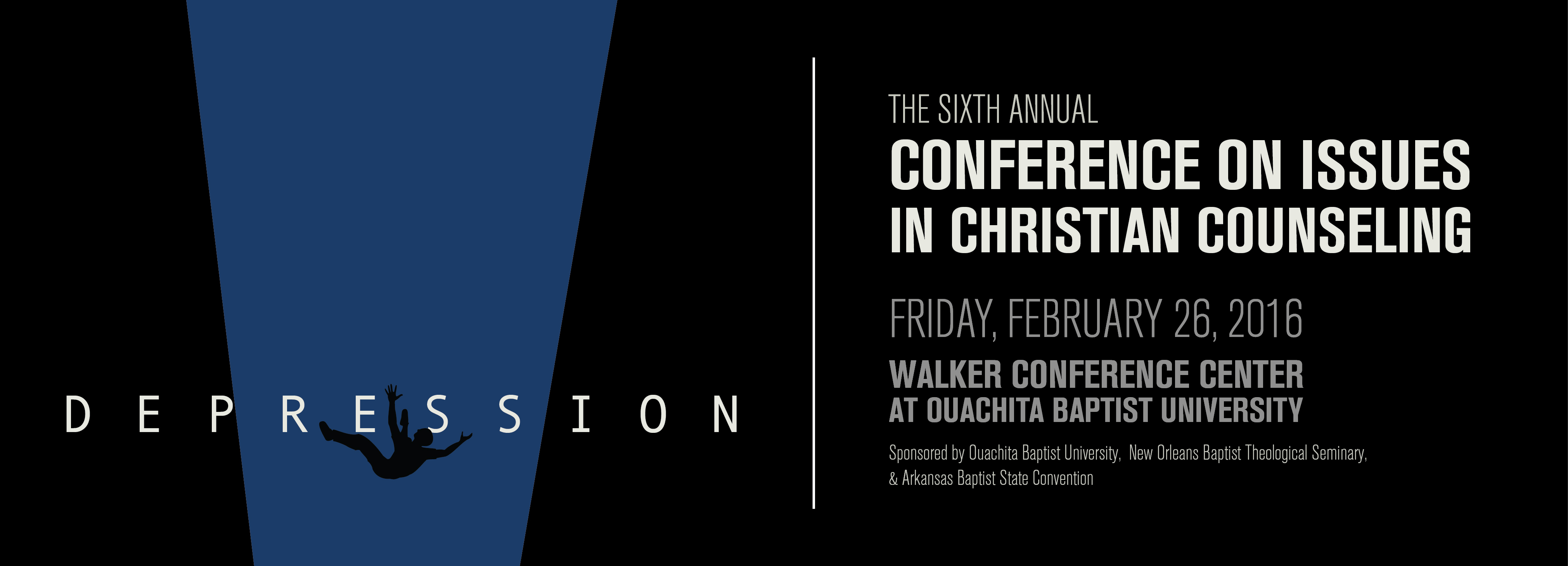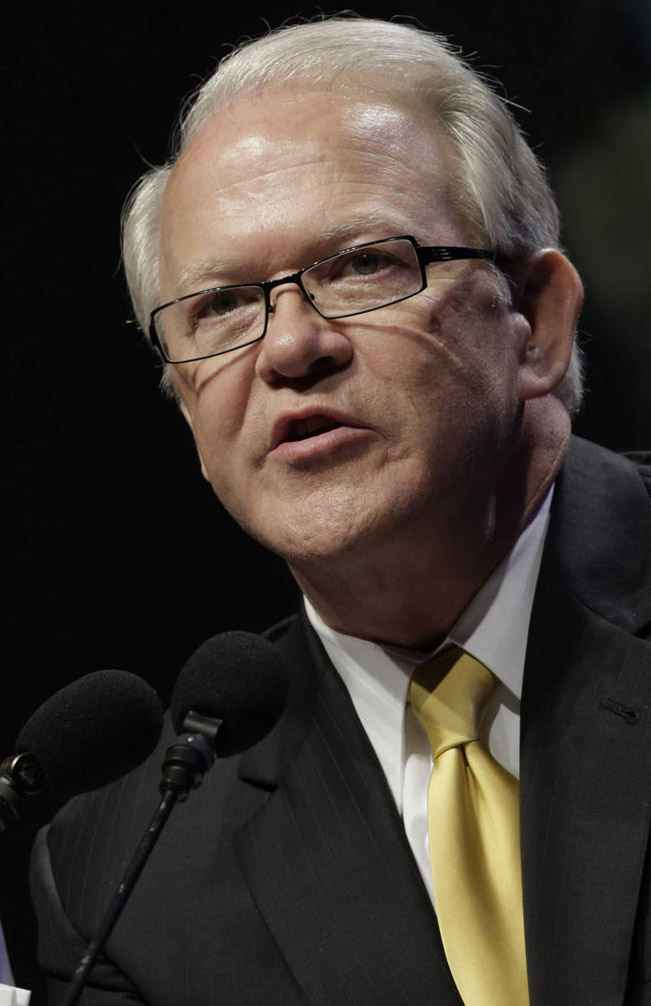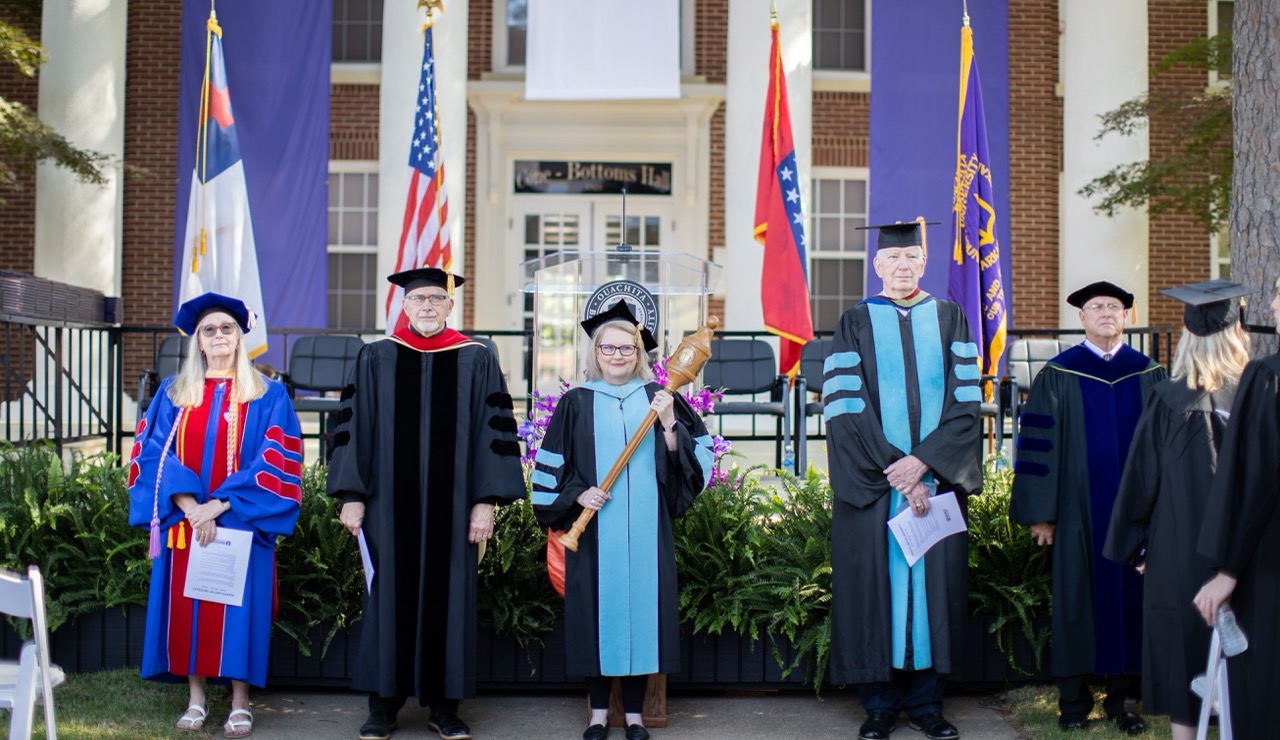Ouachita Counseling Conference on “Depression” equips health professionals and ministers
 March 02, 2016
- Rachel Gaddis
March 02, 2016
- Rachel Gaddis
Frank Page
Ouachita Baptist University’s Pruet School of Christian Studies hosted the sixth annual
Conference on Issues in Christian Counseling at OBU on Friday, Feb. 26. Sponsored
by Ouachita, New Orleans Baptist Theological Seminary and the Arkansas Baptist State
Convention, the one-day conference brought together a total of 160 mental health professionals—counselors,
nurses and social workers—and pastors from around the state to examine the issue of
“Depression.”
In the opening session, keynote speaker Dr. Frank Page focused on depression and suicide,
sharing his family’s personal experience with both issues. He encouraged conference
participants to adopt “a theology of life” in their faith walks and practices. Page,
the president and chief executive officer of the Southern Baptist Convention Executive
Committee, is the author of several books, including “Melissa: A Father’s Lessons
from a Daughter’s Suicide.”
“We know suicide is a horrible experience. The pain that is left behind for family
and friends is a pain that may deaden over time but never heals completely,” he explained.
“Normally suicide has one of the presenting symptoms as overwhelming depression.
“We need a Christian theology of suicide and a Christian theology of mental health
and illness from a Christian response,” Page emphasized. “There are many people who
are not darkening the doors of your church because of depression. Some feel like people
in the church don’t understand. Guess what? Many don’t.”
Stating that the Bible deals with depression and suicide, Page referenced the depressed
psalmist in Psalm 42 and seven Biblical examples of suicide: Abimelek (Judges 9),
Samson (Judges 16), King Saul and his armor bearer (1 Samuel 31), Ahithophell (2 Samuel
17), Zimri (1 Kings 16) and Judas (Matthew 27).
Citing 1 Corinthians 6:19-20, Page said, “The theology of life begins with a recognition
that we do not belong to us. In our culture today, everyone teaches, ‘You belong to
you.’ Well, that’s not what we believe. A Christian theology promotes a stewardship
of God’s ownership of everything, including our own lives.”
Page also stressed the need to confront negative responses and bad theology and challenged
mental health professionals and pastors to “minister the word of God and God’s comfort
to those who are depressed and hurting.”
“Practice the ministry of presence,” Page said. “Our Lord does not leave us, but sometimes
that ministry is best performed by those in the helping community—in church and in
the medical professions and psychological professions. You are the hands and feet
and heart of Jesus reaching out to those around you.”
Following Page’s address, participants had the opportunity to choose from a variety
of breakout sessions related to their field or interests. Session topics included
ethical considerations with therapy-resistant clients, child sexual abuse, depression
and counseling people of faith, pastoral care of the depressed person, cultural and
social influences on depression and pharmacotherapeutic management of depression,
among others.
The National Board for Certified Counselors (NBCC) approved most of the breakout sessions
for Continuing Education credit. Credit was available to licensed alcohol and abuse,
professional and marriage and family counselors; national career counselors; nursing
professionals; and social work professionals.
During the conference’s lunch session Dr. Bill Viser, coordinator for the conference
and professor of Christian ministries at Ouachita, reminded counselors of the importance
of self-care. Titled “When Helping You Is Killing Me,” Viser’s session distinguished
between burnout and depression and provided strategies to combat burnout. Participants
were given time to talk about when they were most susceptible to burnout and their
personal strategies for preventing it.
“All we want to do is highlight something that can happen to any of us,” Viser said.
“If we don’t practice good strategies, if we don’t practice taking care of ourselves,
it can and it will happen to us. We need all the good caregivers we can get in the
field and don’t want to lose any.”
This was Luther Harris’ third year to attend the Conference on Issues in Christian
Counseling. As a pastor and a chaplain for Life Touch Hospice in El Dorado, Ark.,
Harris encounters depression on a regular basis. Specifically in his role as a chaplain,
he ministers to patients and their family members as they approach the end of life.
“It makes it hard if they have not accepted that they are dying, and depression tends
to take an overwhelming stake in their lives at that moment,” Harris said. “Through
this conference I’ve learned a great deal about how to approach it, what to look for
– and not just from the perspective of Life Touch, but from the perspective of a pastor.”
Amir Rostampour said this also was his third year to attend the conference. While
Rostampour currently serves as the young adults pastor at New Life Church in Conway,
Ark., his degrees are in counseling. He first attended the conference as a counseling
intern and later as a practicing therapist.
He noted that Ouachita’s annual Christian Counseling Conference “is the only thing
I know of in the state that brings the two worlds of counseling and Christianity together.”
For Tami Montgomery, an LPC with Arkansas Counseling and Psychodiagnostics in Arkadelphia,
Ark., attending the conference for the first time has given her “a whole different
perspective on depression.”
“It’s refreshing for me that this is not a hellfire and brimstone perspective of depression,”
she said, “and that as Christians we do recognize that it exists.”
For more information about the conference, contact the Pruet School of Christian Studies
at (870) 245-5599.
By Rachel Gaddis
You Also Might Like
Ouachita reports Spring '26 enrollment, led by 50% increase in graduate students
February 11, 2026Recent
Ouachita reports Spring '26 enrollment, led by 50% increase in graduate students
February 11, 2026



